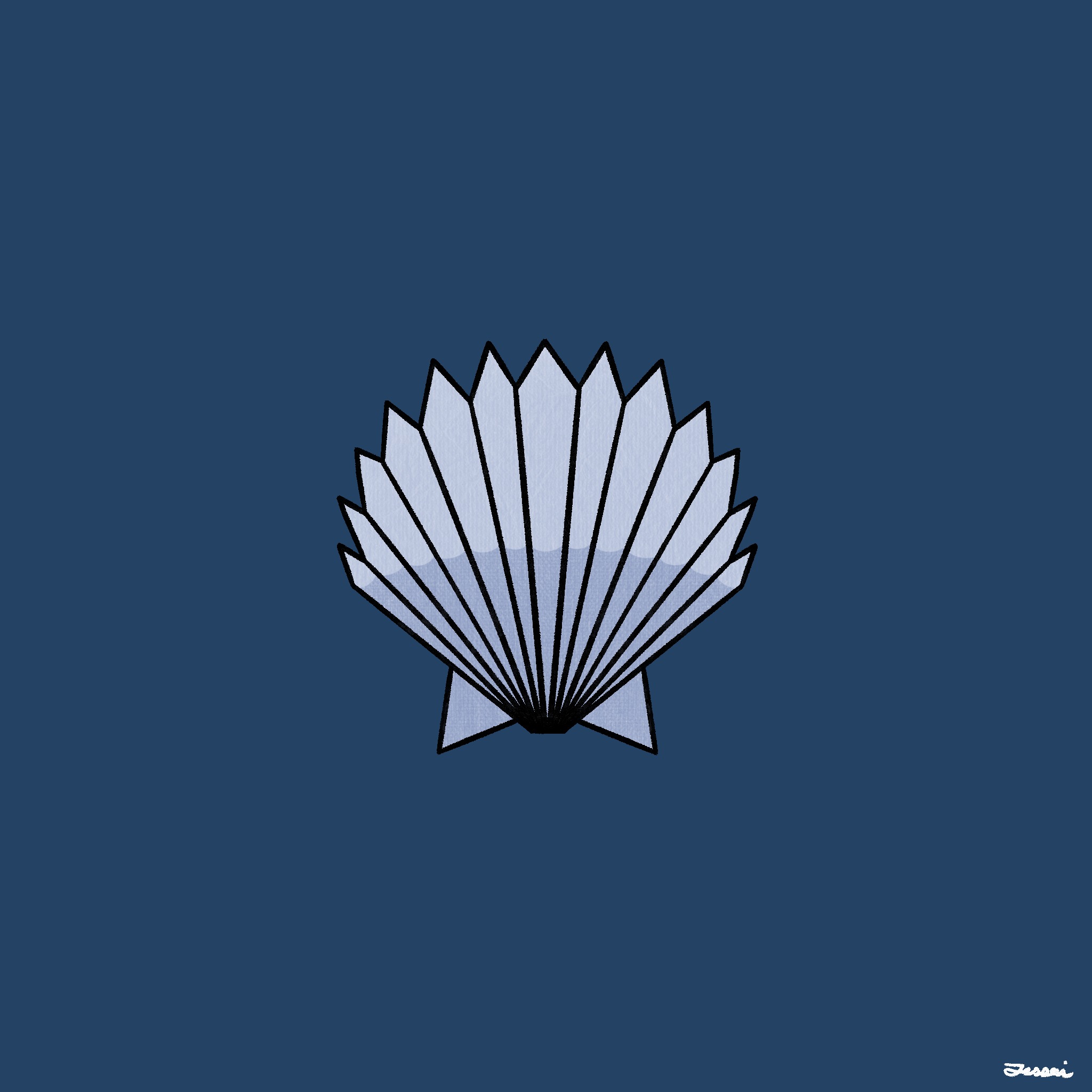
Jessai Flores
Colloquialism. It’s a word I still associate with the Shakespearean terminology Quizlet that I studied for my high school English class, along with other obscure and non-applicable terms. But recently, this one has been on my mind. It’s an uneven number of letters — 13 to be exact. It’s unbalanced. Just saying the word feels uncomfortable, like pushing around a cockel clamshell in your mouth. You can feel the smoothly polished inside and the furrowed ridges lining the exterior. To me, it tastes like cartilage and sea salt, the stuff of crustaceans. But different words don’t have the same mouth feel. At Yale, I’ve tasted more words of different flavors and textures than ever before. Everyone has a different dictionary based on where they grew up: a regional cuisine.
Biting down on that hard shell, the colloquialism shatters into a profusion of pieces called slang.
In the common room of my suite, an amalgamation of people from vastly different places — New York City, London, rural Maryland, Beverly Hills, Alaska, New Haven — sat discussing the slang we had grown so accustomed to at home. We found that many of our habitual terms warrant a double-take here at Yale, where we are surrounded by a community that doesn’t share the same background. Most of these phrases you can’t even find on Urban Dictionary; it’s more of an oral tradition. My personal favorite from the D.C.-Maryland-Virginia area is “brick,” which roughly translates to mean something far away in distance or time. It tastes the way a city smells, faintly reminiscent of asphalt, industry and people. And holding true to the stereotype, my favorite NYC slang is “baconeggandcheese.” One word. 17 letters. But it flows off the tongue, there are no sharp edges for it to get caught on, and it tastes exactly like its namesake.
The way we talk — slang especially — is an integral part of our individual characters. And like cut gems, the colloquialism that we all bring to Yale from our hometowns is yet another facet on our planed surfaces. It’s beautiful because it both unites and divides us as a community. I haven’t met a single person here who knows what “out the road” means — it’s really as simple as it sounds — or knows what I’m referring to when I say “the bay” — Bristol Bay, not the Bay Area. But that’s kind of the best part. It’s a conversation starter, part of finding out where your acquaintance learned that funny word.
As a first-year assimilating to Yale culture, I’ve started picking up on the colloquial language specific to campus. There should be a dictionary for all the terms, nicknames and abbreviations that are particular to the Yale student body. When I first came here, I met up with my suitemate at Gheav; I was confused at first as to why I couldn’t find it, and extremely surprised to learn that it’s the same as Good Nature Market. At first, the difference between Morse and Stiles was indiscernible, but I’ve since learned that they are not the same, just as Toads, Woads, and Soads are extremely different in both principle and execution. I’ve become an interpreter to my mom on the phone, translating my day in terms of Science Hill, HQ and Vandy into a description that makes sense.
I’m constantly reminded that my language situates me between two places: my hometown and Yale. Yalies, past and present, won’t understand my every word, nor does the rest of the world at large know the secret code to our own shared vocabulary. The lack of total understanding isn’t dissonance, it’s a positive disconnect. The way we are shaped by our surroundings is a beautiful fact of life, and our voices, our slang, our colloquial dictionaries are a testament to that shared uniqueness.







